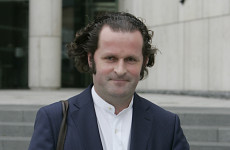Opinion
From ‘refrigerator mothers’ to paracetamol: why harmful autism myths are so common

Read more on post.

US president Donald Trump’s claim that pregnant women should avoid paracetamol – a statement that is both harmful and not backed by the science – fits into a long and damaging tradition of blaming parents, especially mothers, for autism.
Despite decades of research and a far richer understanding of autistic lives, two myths persist: that parents’ behaviour can somehow cause autism, and that autism is a temporary condition that can be “cured” or simply “outgrown.” Large, long-term studies – and the experiences of autistic people – have repeatedly debunked both claims, yet they continue to surface in public debate.
Read more:
We need to stop perpetuating the myth that children grow out of autism
From the earliest theories of autism, researchers looked for someone or something to blame. In the 1950s and 1960s, psychiatrists such as Leo Kanner – an Austrian-American physician who first described autism as a distinct condition in 1943 – and Bruno Bettelheim – a Viennese-born American psychologist known for his controversial theories on child development – promoted the now-discredited notion of the “refrigerator mother”.
This is the idea that autism was the result of emotionally cold parenting. This theory led to guilt, shame and even the forced separation of children from their families, causing immense harm.
That pattern of blaming mothers set the stage for later false claims. In the 1990s Andrew Wakefield, a British gastroenterologist, alleged that the measles, mumps and rubella (MMR) vaccine caused autism. His work was later exposed as fraudulent; the paper was retracted and his medical licence revoked.
Extensive international research has since shown conclusively that there is no link between MMR and autism. Yet the damage continues. Vaccination rates dropped, outbreaks of preventable disease followed, and some children died or suffered serious complications.
Since then, other supposed causes – ranging from gluten and cow’s milk to caesarean sections and even ultrasound scans – have been proposed and later disproved. All these theories share the same misplaced blame: they pin autism on something a parent, most often the mother, is alleged to have done or failed to do.
Recycling harmful false claims
When people in positions of power claim, without evidence, that an everyday substance is linked to autism, it inevitably sows doubt. History shows how damaging that doubt can be.
The US president’s recent comment about paracetamol resurrects earlier myths that were thoroughly discredited, yet remain surprisingly influential. Like the false claims about vaccines or cow’s milk, it risks causing real harm to children and parents alike.
When such statements come from prominent political figures rather than scientific experts, they spread quickly across social media, where algorithms amplify sensational content and make it harder to correct.
In reality, the evidence does not support Trump’s claim. A large international body of research shows no link between taking paracetamol during pregnancy and autism. The few studies that raised concerns were small, often based on animal experiments or limited observational data. Their findings have never been replicated in large-scale human research.
Read more:
Paracetamol, pregnancy and autism: what the science really shows
This pattern is familiar from other autism “scares”. Early studies that suggested a link between ultrasound scans or prenatal stress and autism also relied on animal models and were not confirmed by large population studies.
Myths that outlive the evidence
Even when false claims are debunked, their impact can persist for years. Research shows that many people still believe vaccines cause autism: in 2021, almost one-quarter of respondents were unsure whether the MMR vaccine was safe. Parents of autistic children were more likely to believe in a vaccine link, suggesting that some have internalised the idea of parental “blame”.
This kind of messaging frames autism as something “gone wrong” in the womb – something that could and should have been prevented. It deepens stigma and discrimination against autistic people and their families. It also positions all forms of autism as a defect rather than natural human neurodiversity.
Rising autism diagnoses do not reflect a sudden surge in cases but a better understanding and recognition of autistic people. Instead of asking “What causes autism?”, the more useful question is how to create a world that supports autistic children and adults.











